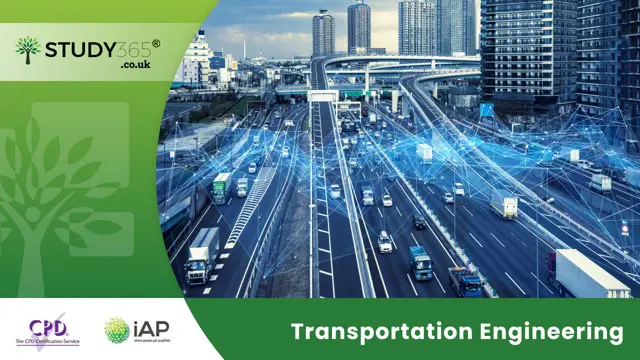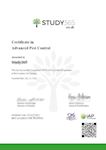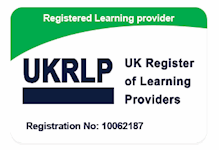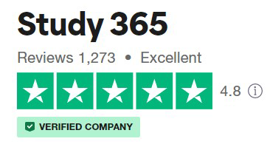
Transportation Engineering
Free E - Certificate Included | CPD & IAP Accredited | Access for Lifetime | No Hidden Fee
Study365
Summary
- Exam(s) / assessment(s) is included in price
- Tutor is available to students
Overview
Certificate in Transportation Engineering (USA Standards - Level 2)
Transportation Engineering (or Transport Engineering) is the use of technology and scientific principles to the planning, design, operation, and management of any mode of transport. Transport Engineering ensures that transport remains safe, efficient, economical, and comfortable for society. This course is comprehensive and provides a full education in transport engineering, which means learners who become certified will be prepared for employment in the industry.
Learning with Study365 has many advantages. The course material is delivered straight to you, and can be adapted to fit in with your lifestyle. It is created by experts within the industry, meaning you are receiving accurate information, which is up-to-date and easy to understand.
This course is comprised of professionally narrated e-Learning modules, interactive quizzes, tests and exams. All delivered through a system that you will have unlimited access. An effective support service and study materials will build your confidence to secure your qualification.
* Free E-certificate (No additional cost for E-certificates)
CPD
Course media
Description
This online training course is comprehensive and designed to cover the topics listed under the curriculum.
COURSE CURRICULUM
Module 01 : Introduction to the course – Certificate in Transportation Engineering
- Mass Transportation
- Transit
- ParaTransit
- Light Rail
- Commuter Rail
- Heavy Rail
- List the Mode of Mass Transport
- Describe How Mass Transportation
- Describe the Methods Used
- Provide Transit Route Design Models
- Describe the Elements
- Analyze the Performance
- Identify the Primary Performance
Module 02 : Transit
- Bus Service
- Bus Size Vary
- Low Floor Bus
- High Floor Bus
- Bus Lane
- Guidance
- Propulsion System
- Fare Payment
- Transit Advantage and Disadvantages
Module 03 : Paratransit
- Innovation
- Fare Payment on-or Off-Vehicle
- ParaTransit Advantages and Disadvantages
Module 04 : Light Rail
- Urban
- Propulsion
- Guidance System
- Fare Payment
- Light Rail Advantages and Disadvantages
Module 05 : Heavy Rail
- Propulsion
- Fare Payment is Off Vehicle
- Heavy Rail Advantages and Disadvantages
Module 06 : Commuter Rail
- Propulsion
- Commuter Rail Advantages and Disadvantages
Module 07 : Other Transportation Terminology
- High Speed Rail
- Passenger Boarding
- Street Level Boarding
- Low Level Platform
- High Level Platform
- Rapid Transit
- Bus Rapid Transit
- Coach Service
Module 08 : Models of Organization
- Organizational Models
- Unregulated/Deregulated
- Regulated Competition
- Threatened Competition
- Private Monopoly
- Public Monopoly
- Contracting
Module 09 : Transit Service Organization
- Standard Public Ownership Model
- Space Coast Area Transit (SCAT)
- Management Contracts
- Service Contracting
Module 10 : Ridership Prediction
- Service Changes
- Headway
- Factors
- Factors Uncontrollable and Controllable
- Professional Judgment
- Survey Methods Non-Committal and Stated Preference
Module 11 : Transit Route Assignment
- Two Approaches
- Two Approaches All-or-Nothing and Multi-Path Assignment
Module 12 : Choice of Model
- Modal Choice
- Modal Choice Methods
- Trip Classifications
- Utility Theory
- Equation 1.1
- Equation 1.2
- Equation 1.3
- Equation 1.4(Logit Model)
- Transit
- Commuter Rail
Module 13 : Modelling and Analysis of Transit Network
- Transit Modeling
- Geographic Information System
- Trans CAD
- GIS Features in TransCAD
- Outputs Data
Module 14 : Model of Wait Time
- Passenger Wait Time
- Transit Vehicle Headway
- Expected Wait Time for a Passenger Waiting for a Transit Vehicle
- Expected Headway for Transit Service on Route
- Equation 1.5
Module 15 : Process of Passenger Arrival
Module 16 : Process of Vehicle Departure
- Equation 1.6
- Equation 1.7
- Equation 1.8
- Dwell time
- Equation 1.9
Module 17 : Models of Vehicle Running Time
- Dwell Time
- Movement Time
- Delay
- Typical Observe Bus Running Time Elements
Module 18 : Transit Performance Measures
- Performance
- Service Availability
- Delivery of Service
- Construction and Maintenance
- Economic Benefits
Module 19 : Dwell Time
- High Variability of Headways
- Excessive Passenger Waiting Times
- Uneven Distributions of Passenger Loads
- Factors Causing Dwell Time Variation
Module 20 : Dwell Time Models
- Equation 1.10
- Equation 1.11
- Equation 1.12
- Equation 1.13
- Congestive Variable
- Congestion Variable (CON) Represent
Module 21 : Bus Frequency
- Equation 1.15
- Equation 1.16
- Equation 1.17
- Equation 1.18
Module 22 : Bus Size Model
- Determine the Optimal Bus Size
- Labor Cost Per Bus Hour is Independent of Bus Size
- Non-Labor Costs are Proportional
- Bus Dwell Time Costs Per Passenger are Independent of Bus Size
- Equation 1.19
- Equation 1.20
Module 23 : Bus Stop and Station Spacing Models
- Equation 1.21
- Stops on the Far Side of an Intersection
- Curb Extension
- Buss Pull Out
Module 24 : Fare Policy
- Fare Policy Must have Clear Goals
- Long Term Goals
- Short Term Goals
- Goals May Also be Driven
Module 25 : Structure of Fare Policy
- Fare Structure
- Pricing Strategy
- Differential Fare
- Payment Option
- Transfer Policy
- Pricing Levels
- Fare Collections and Technology
- Type of Collection/Verification
- Specific Strategy Adopted Must Take into Consideration
- Payment Media/Technology
Module 26 : Conclusion
- Organization of Mass Transportation
- Transit Demand Analysis
- Transit Route Performance
- Dwell time Theory
- Route Design Models
- Transit Fares
Method of Assessment:
At the end of the course learners will also take an online multiple choice questions assessment test. This online multiple choice questions test is marked automatically so you will receive an instant grade and know whether you have passed the course.
Certification:
Successful candidates will be awarded a certificate in Transportation Engineering.
Why Choose Us?
- Our courses represent outstanding value for money
- High quality e-learning study materials and mock exams.
- Each course is designed by industry experts, using an innovative interactive learning approach.
- Includes step-by-step guided videos tutorials.
- 24/7 Access to the Online Learning Portal.
- Anytime & Anywhere Learning.
- Recognised Accredited Qualification.
- Access Course Content on Mobile, Tablet or Desktop.
- Study in a user friendly, advanced online learning platform.
- Excellent customer service and administrative support.
Who is this course for?
This course is specifically designed for those interested in Transportation Engineering, whether you have previous knowledge or not.
Requirements
- This course requires no formal prerequisites and this certification is open to everyone
Career path
This course could open up many career paths for you, including:
- Transportation Engineer
- Roadway Engineer
- Civil Engineer
- Traffic Engineer
- Structures Engineer
- Transport Design Engineer
Questions and answers
Hie! i m in Botswana do i qualify, will it work for me?
Answer:Dear Thembelenkosini, Thank you very much for your query. This course is online self paced. You can enroll to this course from anywhere in this world and do this at your own convenient time. You should be over the age of 16 and should have a basic understanding of English, Maths and IT to take this course. Regards, Student Support Team.
This was helpful.Does this course allow me to go straight into employment upon completion?
Answer:Dear Kai, Thank you for your query. After successful completion of the Certificate in Transportation Engineering Course you will gain an extensive knowledge in transport engineering, which means you will become certified and will be prepared for employment in the industry. Please feel free to contact if you have any further clarifications, we will be happy to assist. Regards, Student Support Team
This was helpful.Hi I need information you are offering Certificate in Transportation Engineering – Level 3 (US Standard) and Level 2 . Do we have other levels as well
Answer:Dear Yasir, Thank you for your Query. Please note that level 3 is the Maximum level for this course. Regards, Student Support Team
This was helpful.
Reviews
Legal information
This course is advertised on reed.co.uk by the Course Provider, whose terms and conditions apply. Purchases are made directly from the Course Provider, and as such, content and materials are supplied by the Course Provider directly. Reed is acting as agent and not reseller in relation to this course. Reed's only responsibility is to facilitate your payment for the course. It is your responsibility to review and agree to the Course Provider's terms and conditions and satisfy yourself as to the suitability of the course you intend to purchase. Reed will not have any responsibility for the content of the course and/or associated materials.





